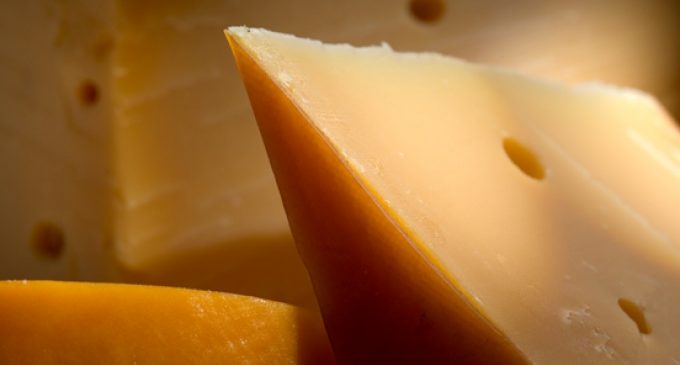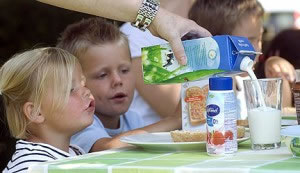Dynamic Year For FrieslandCampina

Geo-political tensions and adverse currency effects during 2014 exerted more influence on FrieslandCampina’s business operations, revenue and financial results than in previous years. The international dairy co-operative reported a 0.6% rise in revenue to Eur11.3 billion as a result of higher sales prices and increased sales of Friso infant nutrition. Currency translation effects had a net negative impact of Eur176 million on total revenue. The volume in the growth categories dairy-based beverages, branded cheese and ingredients dropped as a result of lower consumption, in part due to higher sales prices in Asia, increased competition in several countries, and the Russian boycott of dairy products.
Operating profit rose by 56.2% to Eur489 million. In 2014 a one-time income of Eur131 million was recognised due to an adjustment to the pension plans for employees in the Netherlands. Corrected for this one-time income the operating profit fell by 19.7% compared with the operating profit before goodwill impairment in 2013. Corrected for negative currency translation effects operating profit fell by 10.7%.
 Operating profit was also adversely affected by the Russian boycott of dairy products. The estimated direct effect (loss of revenue and profit) and indirect effect (negative market effects) amounted to at least Eur80 million. Other one-time items were a book profit of Eur20 million as a result of the fire at FrieslandCampina Cheese in Gerkesklooster in the Netherlands and an expense of Eur20 million as a result of the announced closing of the production facility of FrieslandCampina Branded Belgium in Sleidinge.
Operating profit was also adversely affected by the Russian boycott of dairy products. The estimated direct effect (loss of revenue and profit) and indirect effect (negative market effects) amounted to at least Eur80 million. Other one-time items were a book profit of Eur20 million as a result of the fire at FrieslandCampina Cheese in Gerkesklooster in the Netherlands and an expense of Eur20 million as a result of the announced closing of the production facility of FrieslandCampina Branded Belgium in Sleidinge.
The Consumer Products Europe, Middle East & Africa and Consumer Products Asia business groups improved their operating profit. The main reasons were margin improvement due to higher net prices and cost reductions, especially in Western Europe. In the second half of 2014 cost savings contributed towards the operating profit and market conditions improved slightly.
FrieslandCampina’s pay-out to member dairy farmers remained stable. At Eur42.70 per 100 kilos of milk the pay-out was only fractionally lower than in the record year of 2013 (Eur42.90).
 Cees ’t Hart, chief executive of Royal FrieslandCampina, comments: “The year 2014 could accurately be described as ‘dynamic’. Although the disappearance of the EU milk quota will quite possibly lead to even more volatility on the dairy market, the prospects for FrieslandCampina and the member dairy farmers remain positive. The company is well positioned.”
Cees ’t Hart, chief executive of Royal FrieslandCampina, comments: “The year 2014 could accurately be described as ‘dynamic’. Although the disappearance of the EU milk quota will quite possibly lead to even more volatility on the dairy market, the prospects for FrieslandCampina and the member dairy farmers remain positive. The company is well positioned.”
In 2015 FrieslandCampina anticipates volume growth from infant nutrition in Asia and Africa and also expects it will once again be able to achieve volume growth with ingredients and dairy-based beverages. The recovery of the growth of dairy-based beverages will take place primarily outside of Europe. Expenditure on advertising and promotion will increase to support this growth and strengthen the brand positions and market shares. Expenditure for research & development will increase slightly. Investments in infrastructure and production capacity are expected to total around Eur600 million.
In view of the uncertainties following the abolition of EU milk quotas, FrieslandCampina is not making any concrete predictions regarding the expected results for 2015. However, taking a longer-term view the outlook remains positive. As the world’s population grows and welfare increases in many regions the demand for food, and in particular food rich in nutrients including dairy products, will continue rising.



































